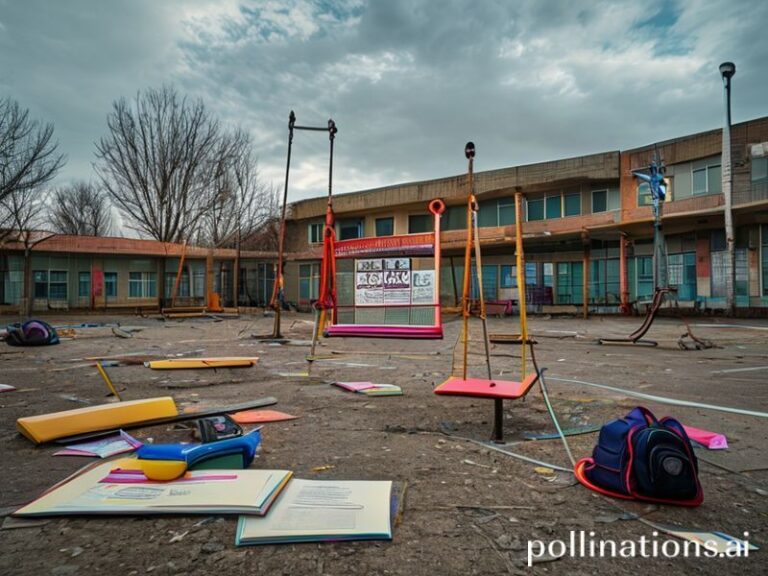Borderline Personalities: How Venezuela and Colombia’s Spat Became the World’s Problem
Venezuela vs Colombia: A Border Spat That Could Give the Whole Hemisphere Heartburn
By the time you read this, the Bolívarian Republic of Venezuela and the Republic of Colombia have already performed their daily choreography of saber-rattling, Twitter-thread diplomacy, and the kind of military posturing that looks impressive only if you squint really hard and ignore the rust. To the casual observer it’s another quaint Latin American melodrama—two neighbors arguing over whose jungle is more sovereign. To the rest of the planet, however, this is less telenovela and more slow-motion domino show: the kind where each tile is a barrel of oil, a gram of cocaine, or a fleeing refugee, and gravity is supplied by Washington, Beijing, and Moscow taking turns blowing on the pieces.
Let’s zoom out. The border in question—roughly 1,400 miles of green hell where GPS signals go to die—has always been a suggestion rather than a fact. Cartographers drew it; guerrillas, smugglers, and enterprising customs officers redrew it nightly in pencil, white-out, and blood. What’s new is that the stakes have gone global. Venezuela sits on the largest proven oil reserves outside the Middle East, which in 2024 is like owning the last working printer in an office full of deadlines. Colombia, meanwhile, has rebranded itself as Washington’s “closest ally south of Texas,” a phrase that sounds flattering until you remember Texas is currently experimenting with state-sponsored bounty hunting and constitutional cosplay.
Cue the external stakeholders. Russia has parked advisors in Caracas faster than you can say “hybrid warfare,” ensuring that any U.S. sanctions regime feels like playing whack-a-mole with a sledgehammer made of frozen borscht. China, ever the discreet loan shark, holds about $19 billion of Venezuela’s IOUs and would prefer not to see its collateral vaporized in a regional tantrum. And the Biden administration—fresh from discovering that Middle Eastern oil doesn’t love it back—has begun courting Caracas again, proving that geopolitics is just a very expensive version of “it’s complicated.”
The immediate flashpoints are almost comically petty. Caracas claims Colombian drones violated its airspace; Bogotá insists those were weather balloons with a cocaine problem. Both sides have moved troops to the border in numbers large enough to look menacing but small enough that nobody has to explain the catering bill. Meanwhile, the cocaine keeps flowing north with the reliability of an Amazon Prime subscription, ensuring that American talk-show hosts will never run out of nightly monologue material.
Refugees, too, are the world’s problem now. Roughly eight million Venezuelans have already voted with their feet, many washing up in Colombia, which has responded with the weary hospitality of a host whose couch is sagging under the weight of history. Should the border harden further, those human rivulets will simply redirect—north to Panama’s Darién Gap, south to Brazil, or onto fishing boats headed for Aruba and the next cruise-ship Instagram backdrop. The EU, already tetchy about Mediterranean arrivals, watches this exodus the way one watches a slow-motion TikTok of someone else’s plumbing disaster: relieved it’s not theirs, yet morbidly aware the algorithm may come for them next.
Climate change, ever the uninvited plus-one, stands ready to stir the pot. The Catatumbo lightning—nature’s own strobe light—has intensified over the border region, igniting wildfires that make troop movements look like interpretive dance performed on a barbecue grill. Should oil infrastructure take a direct hit, global crude prices will spike faster than you can say “transitory inflation,” and central bankers everywhere will discover that their spreadsheets are allergic to jungle thunderstorms.
In the end, Venezuela vs Colombia is less about territory than about narrative control. Maduro needs an external enemy to distract from an economy that runs on barter and black-market TikTok tips. Petro needs to look tough ahead of Colombia’s 2026 elections without actually starting a war he can’t afford. Washington needs cheap oil that doesn’t come with congressional hearings. Beijing needs its debt repaid in something other than empanadas. And the rest of us need the absurd comfort of knowing that even in the age of AI and space tourism, human beings still can’t agree on where to draw a line in the rainforest.
The guns will probably stay silent, the cocaine won’t, and the refugees will keep walking. Somewhere in the middle of that equation lies the punchline: two countries fighting over a border that neither fully controls, while the world watches like it’s binge-watching the final season of a show that jumped the shark somewhere around 1819. Curtain falls; jungle keeps growing.







